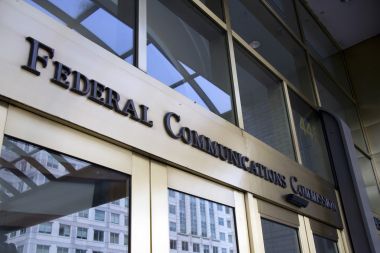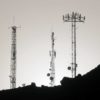Introduction

T-Mobile USA Inc.’s campaign to limit its rivals’ access to new radio frequencies in an upcoming government auction just got a shot in the arm.
A spectrum auction held last month by the Federal Communications Commission, and another planned for the fall will likely raise the $7 billion needed to fund FirstNet, a nationwide interoperable radio network that police, fire fighters and medical technicians can use during emergencies, according to Phil Verveer, senior counsel to FCC Chairman Tom Wheeler. Verveer’s comments were published in the trade journal Broadcasting & Cable.
“We’ve had one auction, we’re going to have another that is going to help meet the statutory requirements with respect to contributions,” Verveer was quoted as saying at a telecommunications conference in Washington. “We’re going to be very close or perhaps even have met them by the time the incentive auction takes place.”
The FCC raised $1.6 billion in last month’s auction, and it expects to bring in the remaining amount, at least $5.4 billion, from another auction of airwaves later this year.
Reaching that milestone relieves some pressure on the agency to maximize revenue from another airwaves auction scheduled for next year, in which T-Mobile and its wireless rivals will compete for rare and valuable spectrum in the 600-megahertz band.
Wireless carriers covet these so-called low-band frequencies because they travel farther and penetrate buildings better than higher frequencies, characteristics needed to handle more traffic and to build a nationwide network that doesn’t drop calls or lose Internet connections. The top four wireless carriers are waging a high-stakes lobbying war in Washington, each trying to convince the FCC to write auction rules favorable to their company.
AT&T Inc. and Verizon Communications Inc. already own a combined 74 percent of the low-band signals, according to FCC data. Sprint Corp., the distant No. 3 carrier, has some low-band spectrum, and No. 4 T-Mobile has almost none.
The smaller companies say they need the frequencies to improve their networks to compete with the larger two carriers. If AT&T and Verizon outbid rivals for most of the valuable spectrum, Sprint and T-Mobile lobbyists, as well as anti-trust lawyers in the Justice Department, say the bigger rivals will dominate the market, leading to a duopoly, higher prices and less technological innovation.
The FCC is considering limiting how much low-band spectrum AT&T and Verizon can win. The two companies argue that such limits would reduce the auction revenue and threaten the FCC’s ability to raise money for the emergency radio network. They also say that TV stations won’t put their signals up for sale if they think the bidding will be limited.
The FCC “should adopt rules that encourage the broadest possible participation by broadcasters and wireless carriers alike, in order to maximize the amount of spectrum re-purposed for mobile broadband and fund FirstNet and deficit reduction,” Verizon said in a Jan. 24 filing with the FCC.
T-Mobile has predicted that the FCC will raise the $7 billion for FirstNet before the 600 megahertz auction. “FirstNet is well on its way to being fully funded prior to the commencement of the incentive auction,” the company said in a Feb. 27 FCC filing after the February auction closed. “Any arguments that the Commission’s design for the incentive auction may somehow jeopardize FirstNet funding should be recognized for what they are: disingenuous distractions.”
If Verveer’s prediction holds, raising enough money for FirstNet and other financial obligations “would seem to weaken [AT&T’s and Verizon’s] argument,” said Jeff Silva, senior policy director for telecommunications at Medley Global Advisors in Washington, D.C.
But the two big carriers’ argument won’t be completely undermined, said Paul Gallant, a managing director at Guggenheim Securities. Verveer’s “statement does undercut one of AT&T and Verizon’s arguments,” Gallant said in an email. “But the carriers also say that bidding limits also could send a negative signal to broadcasters who are thinking of participating, and that’s still a live argument carriers can make to the FCC.”
T-Mobile and Verizon declined to comment. AT&T spokesman Michael Balmoris declined to comment on Verveer’s statements but reiterated the company’s position that spectrum limits will reduce auction revenues and threaten funding for FirstNet and deficit reduction.
The 2011 law that authorized the spectrum auctions required the FCC to raise the money to build FirstNet and also to use some proceeds to pay down the national deficit, among other obligations.
After the September 2001 terrorist attacks, a commission called for a communications system to connect law enforcement, fire fighters and emergency medical crews nationwide. When responding to the attack in New York, commanders on the ground lost radio contact with responders in the towers and were unable to tell them to evacuate before the buildings collapsed.
Read more in Inequality, Opportunity and Poverty
Broadband
Where Comcast, Time Warner Cable and poverty overlap
Broadband
AT&T, Verizon beat back limits on airwaves auction
Federal regulators decline to cap amount of spectrum wireless giants can buy


Join the conversation
Show Comments